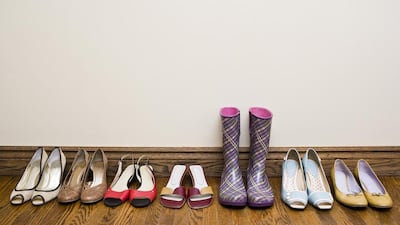“My name is Nina,” begins Susana Medina’s novel. “It comes from the Italian, from ‘Antonina,’ but in Catalan ‘nina’ means ‘doll’.”
This is only the first of the confusions between the animate and the inanimate that litter Philosophical Toys. Children half-believe that their toys are alive, but in Medina's world, adults are little better. "My generation didn't have babies," says Medina's narrator, who exchanges plastic toys as tokens of friendship and love.
Nina, and her friend Mary-Jane, are artists-in-training, using objects in ways that riff on surrealism, a process of “turning fear into sarcasm”. What do they fear? Perhaps it’s objectification. Nina’s mother, who died when she was 6, is little more to her daughter than her possessions. When Nina’s father enters an old people’s “commune”, she finds these include a large collection of expensive footwear, and that her parents were shoe fetishists. Reversing the usual “maternal reliquaries” of treasured children’s merit badges, locks of hair, Nina curates her mother – literally – by turning her shoe collection into a successful art exhibition, at the same time acting as detective in a maternal-mystery story.
A postmodern solipsistic detective, Nina works her mother’s mystery out second-hand: from movies, via telephone calls, from a string of used objects. “I was a knowledge fetishist, I liked its texture.” She hardly has to leave her flat.
But what’s the point of these acts? “Do we need authentic things to assure us that all this is not a fiction? That the past did actually exist?” Or is Nina, as she self-accuses, just “a dirty little girl who liked spying on her mum and dad?” Before the 19th century invented fetishism, Nina discovers, her dad wouldn’t have been considered a “pervert”. “Fetish, a word that comes about through an intellectual perversion of facts,” is “the job of words”.
Knowledge is a form of memory to which words are as crucial as objects, in which, according to their changing semiotic value, words stand as tall and as broad as physical things to enable, or block, ideas. It’s important that Nina, like Medina, is bilingual, “English,” Nina complains, “didn’t belong to me, it lacked the texture of years of experience”.
There’s no irony, no distance to this first-person narrative. Nina is as breathless as a chick-lit heroine – and, as in a romance, her comic misadventures lead her to the perfect man. But this entirely reliable narrator, matching the apparent honesty of solid objects, is Medina’s most subversive trick, allowing her to convey volumes of complicated ideas – philosophy, art theory, film history. There are moments where the volume of information seems about to break the text, but at its best it is completely embedded. The Freud chapter works beautifully, perhaps because the theories of the psychoanalyst and his critics are acted out through Nina’s rage.
When we accord power to things, we make ourselves not their masters, but their equals. This is a dangerous practice as, in things, death is always present: “Borderline… untameable objects” parted from their owners, retain a meaning we can no longer interpret. And finally the owner, like Nina’s dad, parts from himself, “forget[s] to exist”, leaving only a shell: a corpse. As Alzheimer’s robs his words of any ability to organise his memories, he too becomes an object.
Medina asks, what is it that makes us human? Maybe one factor is our ability to love, to think things through.
Nina becomes interested in cyborgs, people with prosthetics, fetish clubs, then – losing herself altogether – begins ghostwriting for a male French philosopher named Lecour (one of the two secret “hearts” of the story, the other of which is Nina’s mother). Imitating him she discovers her own ideas: “Things seduce you because thought is translated into matter.” She might be a “third-rate philosopher”, but it’s by pretending to be a man that Nina gets her own writing together.
"Are we good children? Do we deserve the toys?" Like Nina's father, Mary-Jane retreats into a second childhood mediated by comfort-objects, but Nina embraces adulthood, albeit one that includes Kinder Eggs. Exuberant, intelligent, touching, intimate and playful, Philosophical Toys is a joyful invitation to us, to love all the things that we are.
This book is available on Amazon.
Joanna Walsh is a UK-based writer. She edits fiction at 3:AM magazine and runs @read_women.
thereview@thenational.ae

